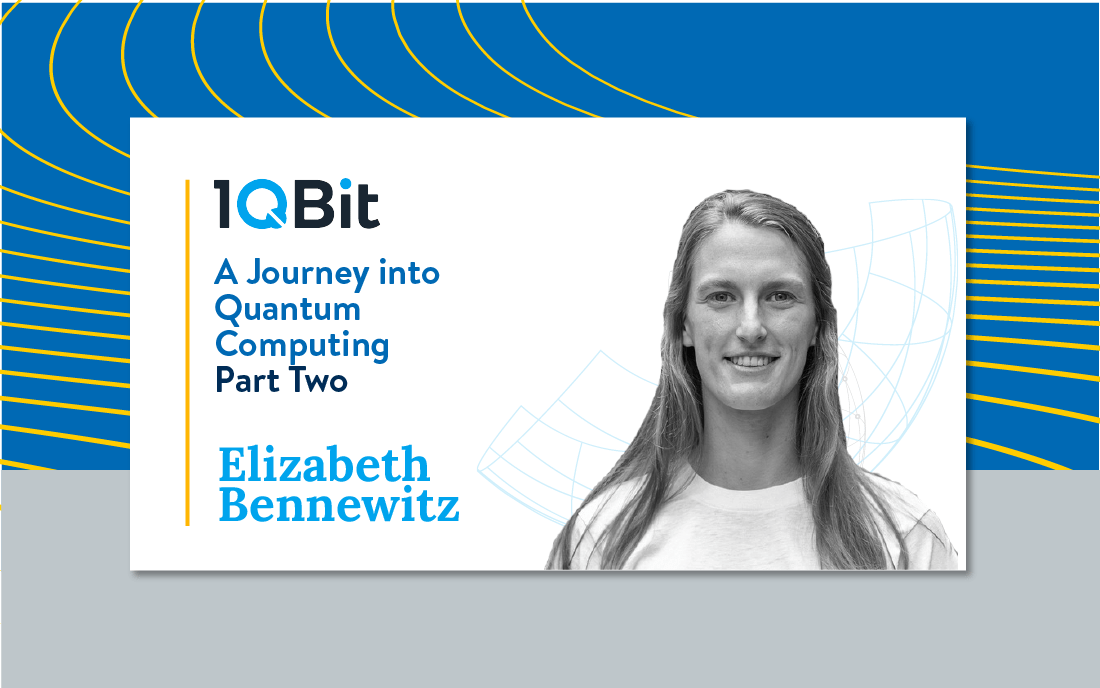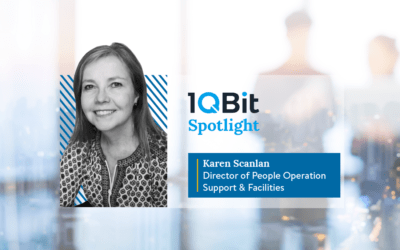Elizabeth Bennewitz is a quantum computing and machine learning researcher at 1QBit. In the first part of this three-part series, Elizabeth’s inspiration and path on the way to becoming a master’s student and research intern was explored.
During her master’s degree studies, Elizabeth reflected on what exactly she wanted to do with her physics education after graduate school. “In order to explore all my options, I decided to shift my focus from astrophysics research to pursue research outside of academia,” she expresses.
“I’ve really valued my time at 1QBit not only because it offered me another path to apply my physics background, but also because I can delve into the fascinating field of quantum computing as part of my career.”
Elizabeth was proactive and contacted the 1QBit Waterloo team to learn more about physics applications in industry. She found out that they were interested in working with a PSI (Perimeter Scholars International) student. This meant that she could combine her interests in quantum physics with research outside of academia through a Mitacs internship. For many individuals, such an internship has been a valuable bridge between academia and industry at 1QBit.
Elizabeth was accepted into the program. Her supervisors for the internship were Pooya Ronagh (Professor at the Institute for Quantum Computing and Head of the Hardware Innovation Lab at 1QBit) and Juan Carraspuilla (Professor at the Vector Institute). She became the first PSI student to collaborate with industry to complete her thesis.
Shortly after beginning her research, the COVID-19 pandemic began, and the PSI program switched to a remote-learning model. Elizabeth decided to travel back to the US to live with her sister and continue her research from Baltimore. “At first,” she says, “it was very difficult to transition from Perimeter’s bustling physics environment to living in quarantine with my sister, but we made adjustments. Pooya and Juan were very flexible and we found an effective research routine that fit our new pandemic workflow.”
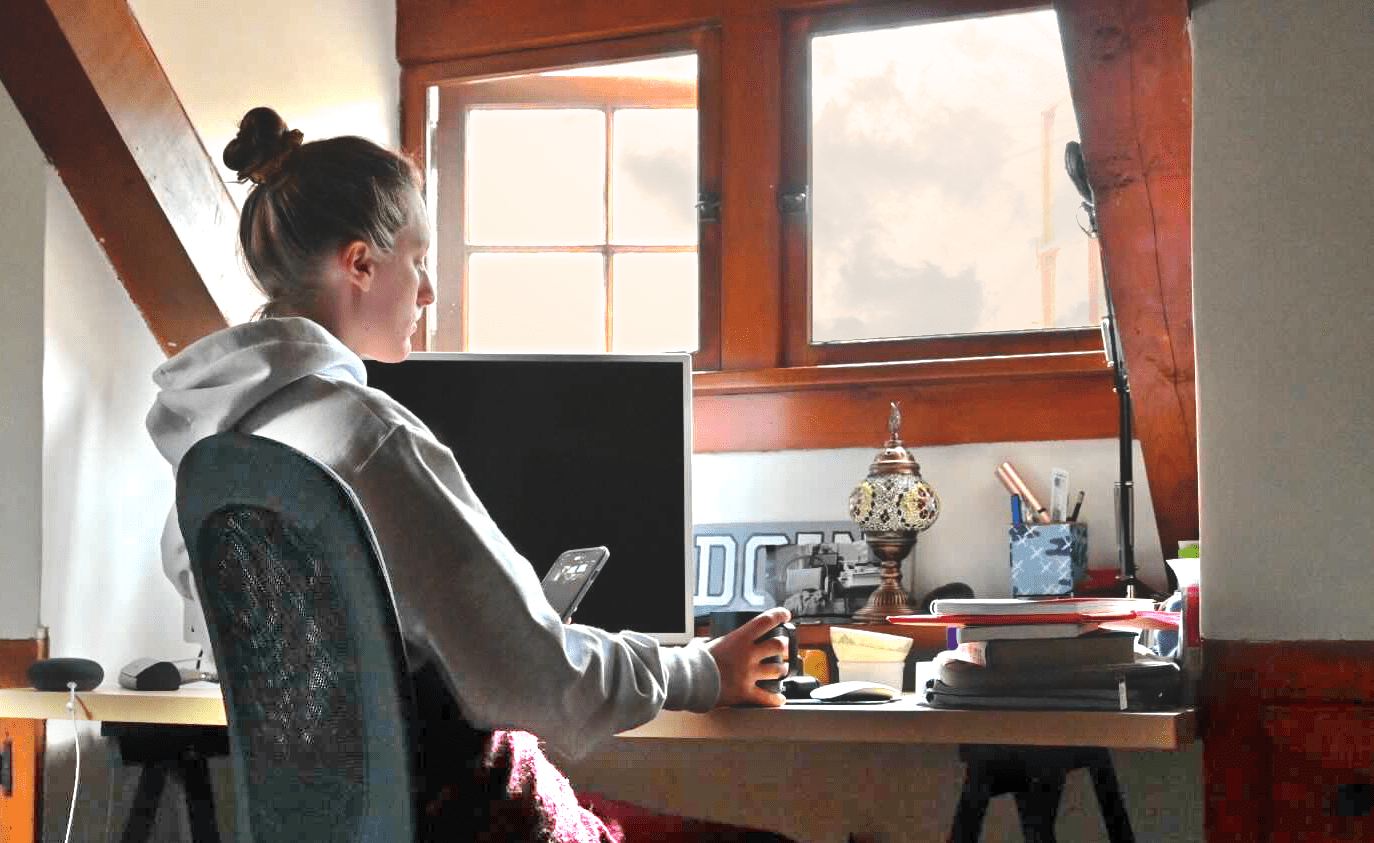
Elizabeth working from home
Elizabeth needed to be adaptable and creative. She shares, “My sister, her roommates, and I had to create new desks and work areas throughout the apartment. We changed side tables into desks, and kitchen tables into group work stations in order to accommodate the new work-from-home lifestyle.”
Even though it was challenging and affected much of her life, Elizabeth was resilient and learned to deal with whatever matters had stood in her way. This fact likely resonates with many people. Elizabeth also relates that it made her appreciate “the little things” more, like going for walks or having coffee with her sister.
The Internship: Quantum Computing and Machine Learning
Elizabeth worked on quantum simulation during her internship. Simulating quantum systems is a task performed in investigating the expectation that quantum computers will surpass the capabilities of classical (our everyday, non-quantum) computers. Qubits represent information in quantum computers, but they are fragile and can easily interact with their external environment, creating noise in the system. The effect of noisy qubits on current and near-term quantum devices introduces errors that limit the performance of quantum computing.
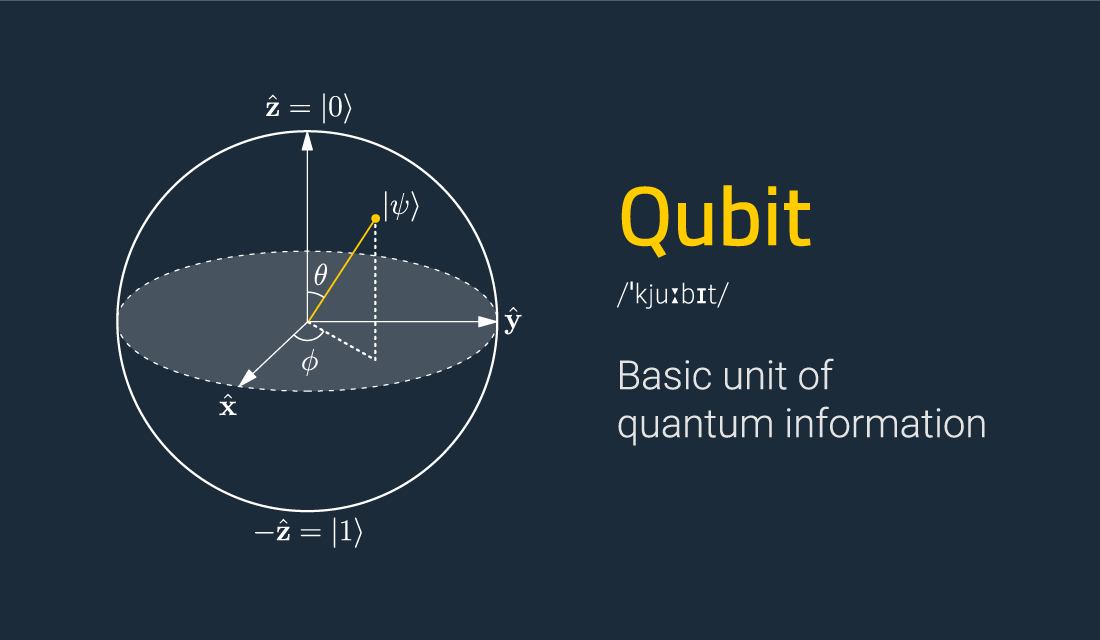
Representation of a qubit
In order to take advantage of simulating ground states* using a quantum computer, these errors must be mitigated.* Elizabeth worked on developing an error-mitigation technique using machine learning to reduce the effects of noise and improve ground-state approximations,* which is important for understanding physics and chemistry on the small (quantum) scale.
The technique—called “neural error mitigation”—uses recent applications of neural networks* and machine learning to mitigate errors and improve quantum computation. A neural network is trained to represent a noisy ground state expressed by a given quantum computer from experimentally available measurements. Then, the neural network’s quantum state undergoes another training procedure to fit the physical criteria outlined for the problem.
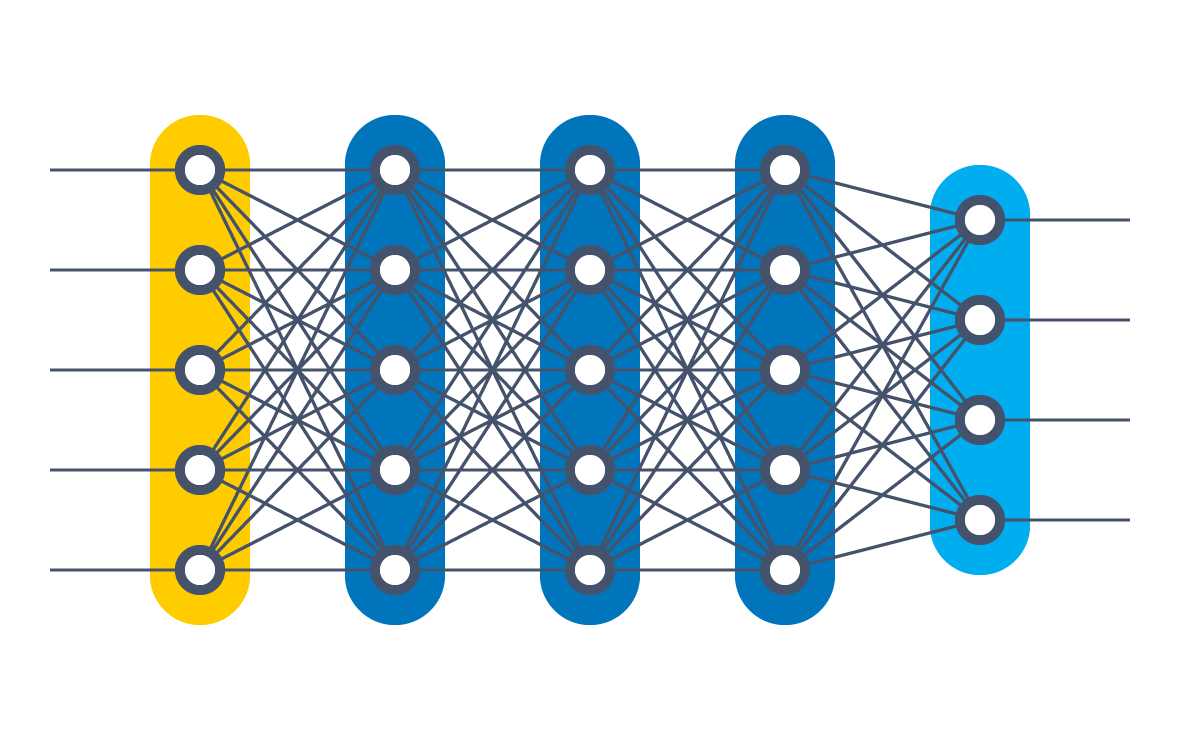
Schematic of a neural network
The technique was applied to various examples, and ground-state representations showed improvement. After successfully defending her master’s thesis, Elizabeth continues to work on this project at 1QBit.
The Next Steps After an Internship
Elizabeth notes, “Transitioning from my internship to working at 1QBit involved taking on more responsibilities and working more collaboratively with other researchers. Once I transitioned to working full time with 1QBit, I started to delve deeper into each aspect of our project and to understanding the scaling potential of our neural network.”
Emphasizing that there is more than one path to a career in physics, Elizabeth says, “At the end of my undergraduate program and at the beginning of my master’s, I felt that there was one path forward—academia—if I wanted to have a career in physics.” She continues, “I’ve really valued my time at 1QBit not only because it offered me another path to apply my physics background, but also because I can delve into the fascinating field of quantum computing as part of my career.”
In the final part of this series, the impactful research Elizabeth is currently pursuing at 1QBit, along with her outlook for the future, will be featured. Keep up with this story by subscribing to the 1QBit Blog.

